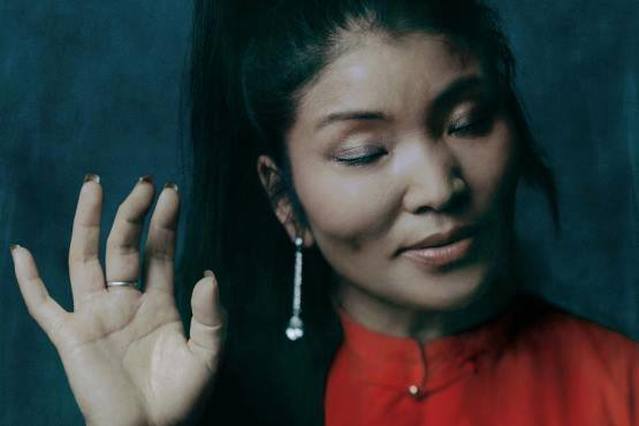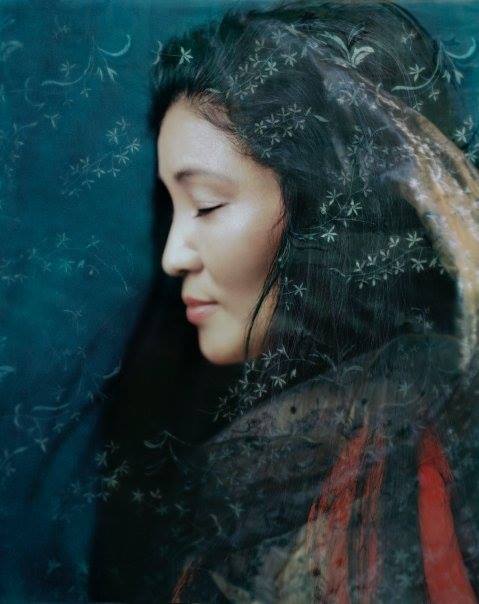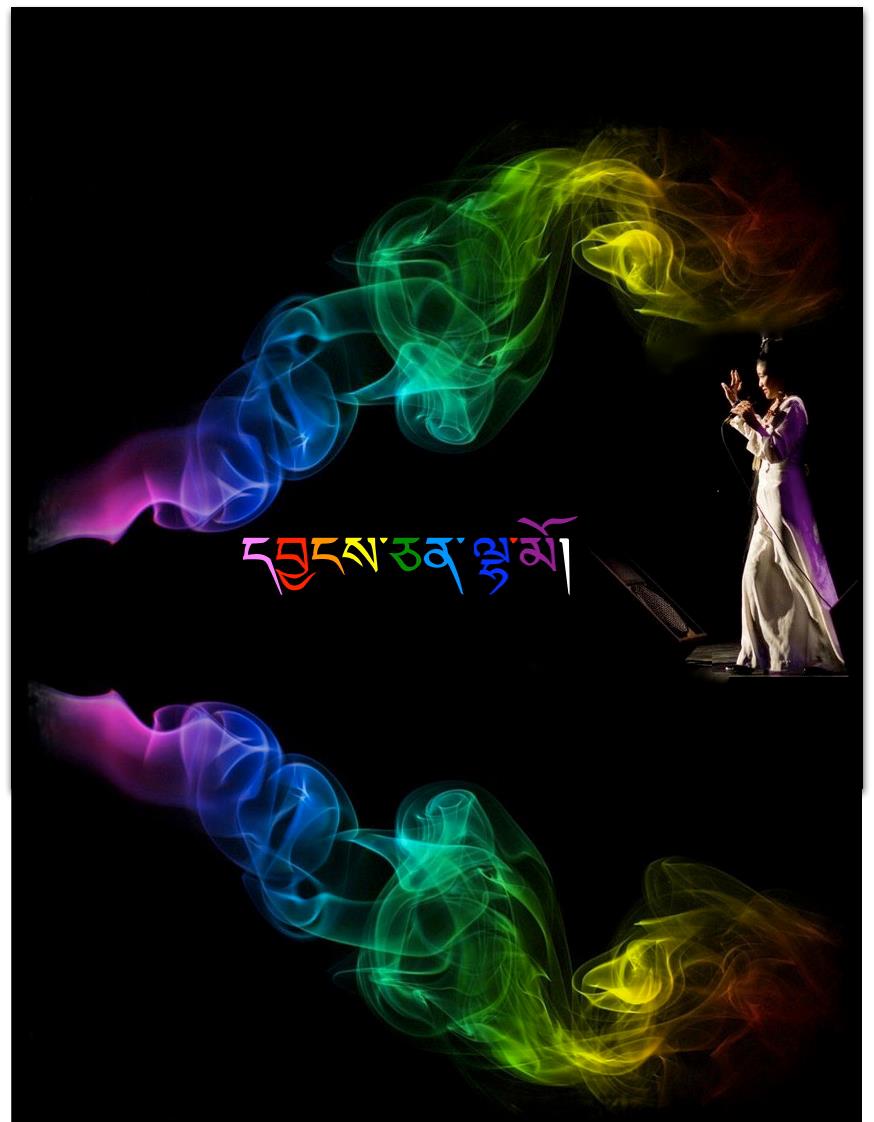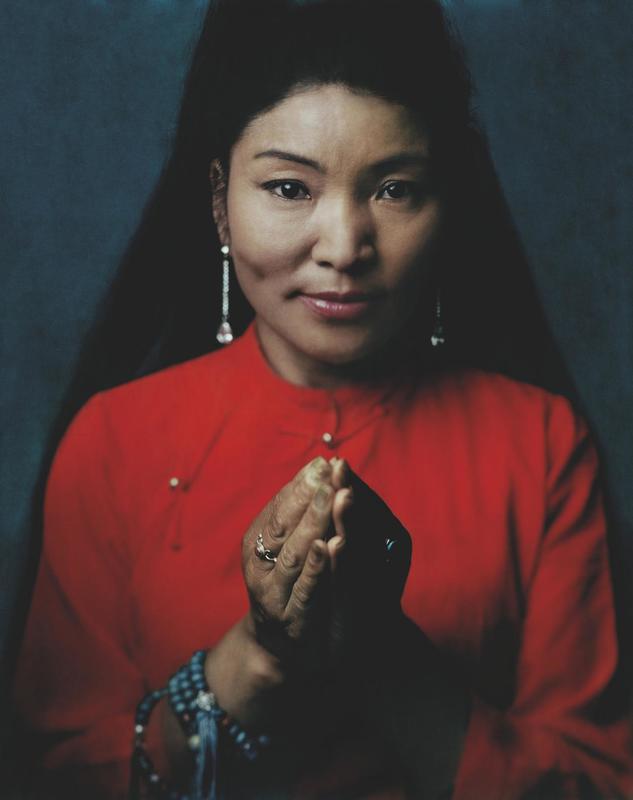Becoming A Drop of Kindness
Yungchen Lhamo, Tibetan Buddhism, and Whitehead
"Lhamo, a Kingston [New York] resident, has focused on music, role-playing therapies and the
use of simple mantras to benefit the area's homeless, developmentally disabled and mentally ill."
|
Becoming a Drop of Kindness
Do random acts of kindness have a ripple effect? Yes, say process theologians along with Tibetan Buddhists (and all other Buddhists as well). Every activity we undertake, no matter how small, influences everything that comes after us, bringing something of its emotional quality (its subjective form, to use Whitehead’s phrase) into the future. And not just our own personal future and its immediate environments, but also the future of the universe, however miniscule. That’s how interconnected things are. The universe is an unfolding network of inter-becoming. Admittedly, random acts of cruelty and violence also have such an effect. They, too, influence our future, our local environments, and the universe as a whole. We create heavens for one another, and we also create hells. This is why it can help for us to cultivate, within ourselves, hearts of loving-kindness. It is one way we help create the wider world in a positive way. The of the great values of Tibetan Buddhism is that it offers so many practices for doing this: mantras, mandalas, and mudras. And deity yoga, too. * Our acts of kindness are also, as it were, “drops of kindness.” I borrow the metaphor of drops from Whitehead and from Yungchen Llamo. Influenced by Whitehead's philosophy, process philosophers and theologians believe that our lives unfold as “drops of experience.” Whitehead puts it this way: “The final facts are, all alike, actual entities; and these actual entities are drops of experience, complex and interdependent.” The idea is not that that we have drops of experience, as if "we" were one thing and the drops another. It is what we ourselves, moment by moment, are such drops. We are not self-contained subjects enduring unchanged over time, but rather momentary subjects who are different at each moment, always inheriting from our past, yet always here-and-now, and always connected with the world around us. Our calling in life is to be the best self we can be in the moment at hand. In the next moment we'll be another self. Buddhists all over the world have been saying something like this for some time (roughly 2500 years) adding that, when we extend kindness to others and ourselves, we become, in those moments, drops of kindness. Thus we are offered the idea that, in this moment, whatever it is, we can become one drop of kindness through our intentions, our feelings, our actions. Yungchen Llamo has developed a project with her charitable foundation to promote this idea. Her website describes the project as follows: "One Drop of Kindness" combines the voice of Yungchen and those involved into a healing, empowering, and unifying experience. This project uses the art of audience participation to help individuals step outside of their identities and see the world through the eyes of those who have been turned away from society. This exercise shows us that every life is deserving of beauty, unconditional love, and compassion from their community.” Process theologians and Buddhists alike believe that when we become acts of kindness, we simultaneously awaken to a truth that is too often hidden: we are parts of one another, contained within each other, even as we are different. The differences are as important as the similarities, providing opportunities for community kindness. Yungchen Llamo says it simply: "every life is deserving of beauty, unconditional love, and compassion from their community." Random acts of kindness are not about everything become "one" in a homogenizing sense; they are about everything becoming "many" in a loving sense, where we share in one another's destinies in a spirit of unconditional love. * The need in our time is for communities to become drops of kindness, too. This means that they take care of every life, human to be sure and also more than human. Such communities are creative, compassionate, participatory, egalitarian, humane to animals, and ecologically wise, with no one left behind. Process theologians speak of them as "ecological civilizations." Yungchen Llamo is helping build such communities through her work in Kingston, NY. Thus she provides a model of socially-engaged Buddhism: that is, a Buddhism that reaches out beyond the illusion of self-contained individuals toward the truth of what Martin Luther King. Jr. called "beloved community." |
|
Interview with Yungchen Lhamo |
Happiness Is... |
Music from Yungchen Llamo
|
|
|



